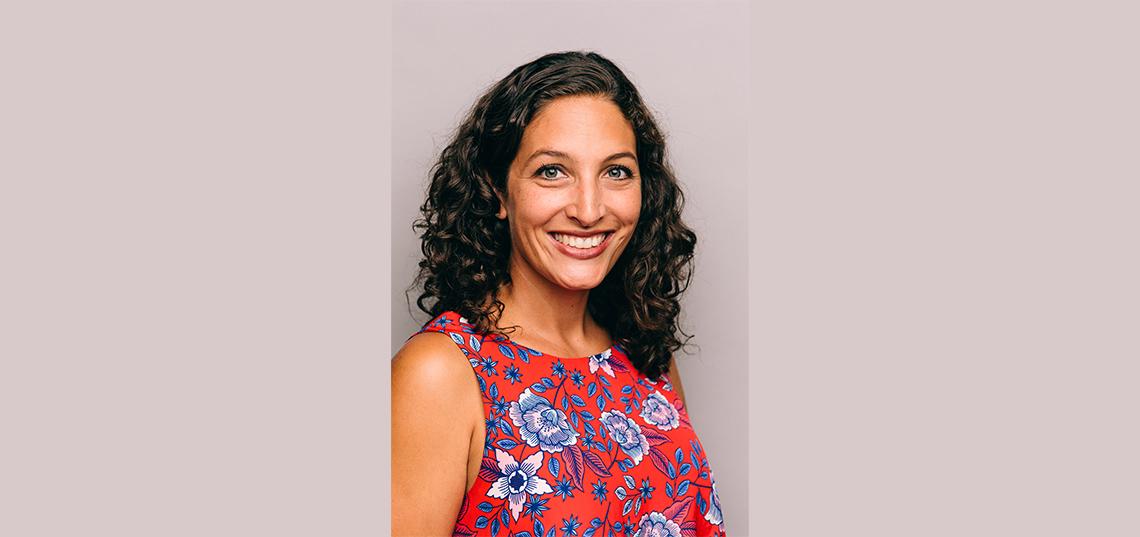
In September, SC&I alumna Maria Venetis, Ph.D. ’10 returned to the SC&I Communication Department as an Associate Professor. Since 2012, Venetis has been a member of the faculty in the Brian Lamb School of Communication at Purdue University. The recipient of a number of awards, in 2019 Venetis was awarded the Lorene Burkhart Award for Excellence in Research about Families at Purdue University. In 2017 she earned the Top Four Paper Award from the ICA Health Division, and in 2010 she was awarded the Irving S. Upson Achievement Award by the SC&I Communication Department. Below, Venetis discusses her research interests and current projects.
My research examines both provider-patient communication and patient-close other communication. Recently I have been focusing on the latter stream of research about how patients and close others communicate. As an interpersonal scholar, I ground my work in interpersonal processes, and I will share with you some of the processes that guide my research. One dominant focus is disclosure processes and how two people decide to talk about particular health-related content. I am more interested in why they choose not to talk about something than why they do.
One project that I’m actively working on includes how women in India do or do not talk with their family members about menstruation. Although menstruation is a private topic globally, in India, it is highly stigmatized. Some families do not mention menstruation at all, leaving the burden of understanding the physical changes and behavioral expectations to the young woman. This lack of openness further perpetuates the sociocultural stigma.
Another active line of research includes disclosure to medical providers. I study how individuals share potentially stigmatizing information, such as sexual orientation and/or gender identity with medical providers. This work is grounded in the disclosure decision-making model but also serves to examine the strategies people use when sharing information. I’m interested in what people choose to say and how they choose to say it.
I am also interested in the ongoing communication between dyads that serves to support the other and create resilience as well as those support efforts that miss the mark. One active project examines how women with gynecologic cancer communicate with a support provider who attends their medical visits with them. I have been contrasting the types of support that caregivers report giving and how patients report those same communication efforts as lacking support. An example of a theme of this research is something like, “I think I am helping you, but I am actually making you upset.” It’s important to identity these problematic patterns of communication to help dyads know how to talk with each other when managing a stressor such as cancer. I would like to replicate and extend this work locally with participants in which English is not their dominant language. There appears to be a very different pattern of support and communication when the primary support person is an adult child who is managing employment, their own family, and potentially language brokering for the patient than when the support provider is a spouse or the patient’s sibling. The data reflects that patients do not always advocate or speak for themselves during medical interactions, and this effect seems to be exacerbated with patients whose primary language is something other than English. I would like to further examine these efforts at support in this context.
Finally, another interpersonal process that I’ve been studying is how dyadic partners enact resilience. I use the communication theory of resilience to examine how people engage in daily interactions that serve to promote or hinder resilience. For example, when faced with a stressor such as COVID-19, one resilience-promoting strategy that increases dyadic coping is the use of humor. My colleagues and I have been examining how, in response to COVID-19, couples use resilience processes, and how those processes are associated with relational uncertainty, emotional response, and ultimately dyadic coping.
This semester I am teaching the undergraduate and master’s level Interpersonal Communication courses. In the spring, I’ll also instruct Interpersonal Communication Theory at the doctoral level.
More information about the Communication Department at the Rutgers School of Communication and Information is on the website.
